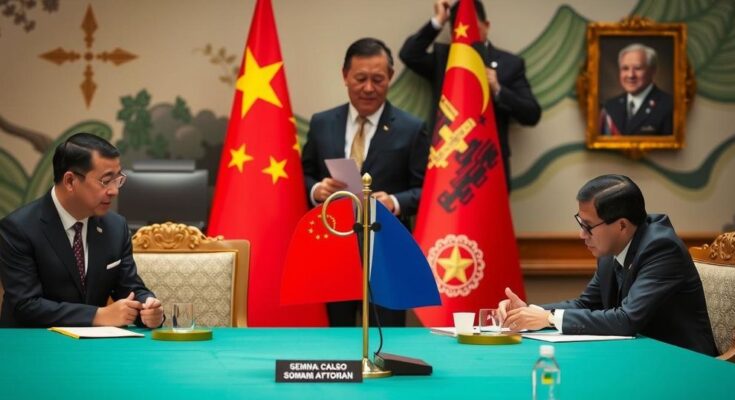China’s support for Somalia was reinforced by diplomat Xue Bing’s visit to Mogadishu during a period of U.S. backing for Somaliland’s recognition. The recent inauguration of Somaliland’s president, Abdirahman Mohamed Abdullahi, has prompted China’s firm stance against U.S. engagements and official interactions with Taiwan, highlighting ongoing geopolitical tensions.
In a strategic move amidst rising tensions over the recognition of Somaliland, China has reaffirmed its support for Somalia. Recently, Xue Bing, China’s special envoy for the Horn of Africa, visited Mogadishu to advocate for Somalia’s national sovereignty. This visit occurs against the backdrop of significant U.S. interest in Somaliland, highlighted by the recent inauguration of Abdirahman Mohamed Abdullahi as its president. While Somaliland declared independence in 1991, it has not gained recognition from any country, with Somalia deeming it a part of its territory. The U.S. and China continue to navigate this delicate geopolitical landscape, each asserting their influence in the region.
The Horn of Africa has historically been a complex geopolitical area, marked by territorial disputes and a legacy of colonialism. Somaliland, which unilaterally declared independence in 1991, has not achieved formal recognition as an independent state, complicating its international status. Recently, the United States has shown growing interest in Somaliland, which has provoked reactions from China, who opposes any attempts to formalize ties between Somaliland and Taiwan, viewing the latter as a breakaway province. This context highlights the intersection of local sovereignty issues and global power dynamics, particularly between U.S. and Chinese interests.
In conclusion, China’s backing of Somalia amid U.S. support for Somaliland illustrates the ongoing struggle for influence in the Horn of Africa. As both nations vie for strategic partnerships, Somalia’s position remains critical to regional stability. China’s clear declaration of support emphasizes its commitment to opposing any actions that might destabilize the existing territorial framework, especially in relation to Somaliland’s aspirations for statehood, further complicating the diplomatic landscape in the region.
Original Source: www.scmp.com




